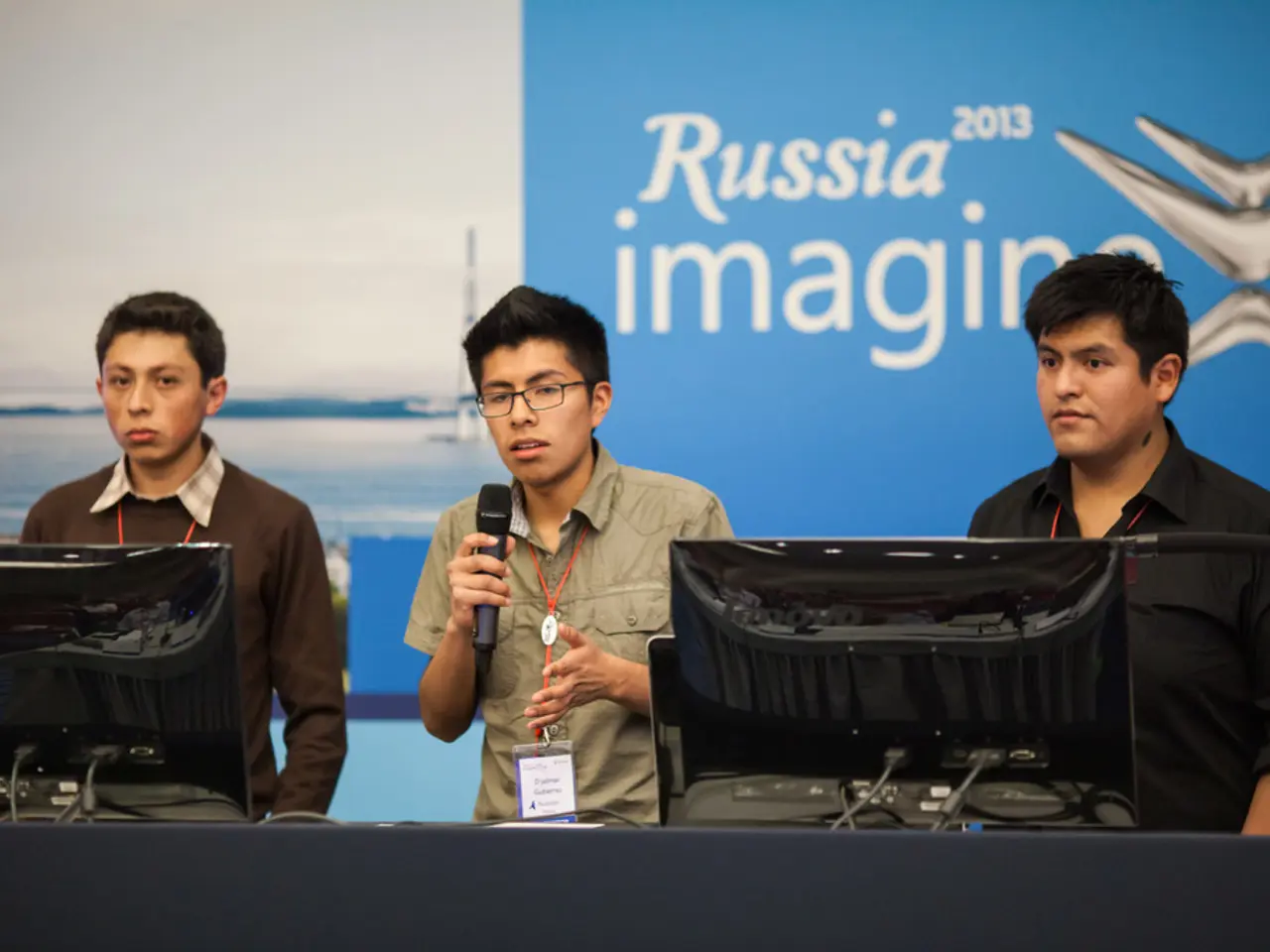Global political dynamics influencing worldwide job markets emphasized by IBA
In a rapidly changing world, the employment landscape is being significantly impacted by global conflicts, geopolitical shifts, climate disruption, and trade wars. According to a new report titled Global War, Global Trade: a Global Employment Institute Perspective, published by the International Bar Association's Global Employment Institute (GEI), these factors are creating economic uncertainty, workforce disruptions, and regulatory challenges.
The report highlights how conflicts such as the war in Ukraine and the Gaza conflict, rising nationalism, migration flows, climate imperatives, technology disruption, and trade friction between major powers are destabilizing employment markets globally.
One of the key areas of impact is the economic and social disorder caused by these conflicts and geopolitical tensions. Employees are grappling with declining wage value due to inflation, deteriorating mental health, and unstable employment environments.
Trade wars, particularly between the US, China, and the EU, are also causing significant challenges. These conflicts increase costs, inflation, and job shocks across major sectors including manufacturing, agriculture, and technology. This creates uncertainties even within trade agreements like the United States-Mexico-Canada Agreement (USMCA), affecting employment stability.
Climate imperatives and environmental disruptions are another major influence on economic activity and organizational cultures. These shifts in workforces and regulatory frameworks require adaptation from employers and HR professionals.
Sanctions, tariffs, and evolving political landscapes are also contributing to systemic strains on global trade, workforce mobility, and national regulatory environments. This pressure is forcing legal and HR experts to manage emerging risks in employment practices.
The report emphasizes the importance of companies managing conflicting views thoughtfully to minimize disruption, as employees' opinions and consciences on global issues can influence organizational culture.
In response to these challenges, some countries like Canada and Indonesia are investing in sustainable industries and renewable energy to offset disruption caused by changes to international trade patterns.
However, the report also notes that rising psychological and emotional stress has driven many employers to engage with their staff's mental wellbeing in ways previously unheard of.
Moreover, climate-driven legislation is generating new employment in sustainable sectors, but the accelerating use of AI in recruitment raises concerns over transparency and fairness, particularly within the banking, logistics, translation, and financial services sectors.
Stricter immigration regimes are constraining workforce mobility, particularly affecting neighboring or host nations struggling to balance skills demands with stringent entry controls. The Nordic countries, known for labor shortages, are grappling with restrictive immigration policies, making it difficult for lower-skilled workers to access the labor market.
Employers and organizations are forced to make strategic changes, including reassessing workplace policies, halting production, downsizing, retraining staff, or sourcing new markets due to the disruptions caused by these global events.
The report frames how these systemic factors are reshaping global commerce and employment, urging ongoing assessment by legal and HR practitioners to navigate the complexities brought by these intertwined global forces. The analysis is based on the most recent and detailed summary of the GEI report from the International Bar Association dated August 2025.
[1] International Bar Association's Global Employment Institute (GEI), Global War, Global Trade: a Global Employment Institute Perspective, August 2025.
- The conflicts in regions like Ukraine and Gaza, along with rising nationalism, climate disruptions, technological shifts, and trade tensions are causing economic and social instability, resulting in declining wage values, deteriorating mental health, and unstable employment environments for workers.
- In the realm of general news and politics, the report by the International Bar Association's Global Employment Institute (GEI) highlights the impact of climate imperatives and emerging AI in recruitment on employment practices, creating concerns about transparency and fairness, particularly in sectors such as banking, logistics, translation, and financial services.




